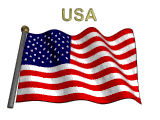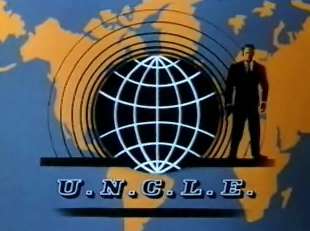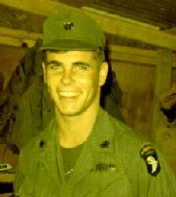
The 60s Official Site
"Where Music is Our Middle Name"
Quick Links
Todays Trivia Question. Your Daily Oldies Fix Top Ten Countdown Solid Gold Memories Jukebox Music
Vibration of a Nation Remember When Television of the 50s and 60s Do You Remember These 60s Slang
Things You Just Don't Hear Anymore 60s TV Commercials Chickenman Episodes Woodstock This Weeks Number One Hits
The Early Years of Rock and Roll Vietnam War Myths
All the content menu is listed on the left menu border bar
The Man from U.N.C.L.E. is an American television series that was broadcast on NBC from September 22, 1964, to January 15, 1968. It follows the exploits of two secret agents, played by Robert Vaughn and David McCallum, who work for a fictitious secret international espionage and law-enforcement agency called U.N.C.L.E., whose letters stand for the United Network Command for Law and Enforcement. 105 episodes were produced between 1964 and 1968. The series was created by Metro-Goldwyn-Mayer. The first season was broadcast in black-and-white. James Bond creator Ian Fleming contributed to the show's creation.The book The James Bond Films reveals that Fleming's TV concept had two characters: Napoleon Solo and April Dancer (The Girl from U.N.C.L.E.). ("Mr. Solo" was originally the name of a crime boss in Fleming's Goldfinger.) Robert Towne and Harlan Ellison wrote scripts for the series, which was originally to have been titled Solo. Author Michael Avallone, who wrote the first original novel based upon the series (see below), is sometimes incorrectly cited as the creator of the series (such as in the January 1967 issue of The Saint Magazine). At one point, Fleming's name was to have been connected more directly with the series. The cover of the original prospectus for the series showed the title Ian Fleming's Solo. Solo was originally slated to be the "solo" star of the series, the only "Man." But a small scene by a Russian agent named Illya Kuryakin caught fire with the fans, and the two were permanently paired. The series centered on a two-man troubleshooting team working for U.N.C.L.E.: American Napoleon Solo (Robert Vaughn), and Russian Illya Kuryakin (David McCallum). Leo G. Carroll played Alexander Waverly, the British head of the organization (Number One of Section One). Lisa Rogers (Barbara Moore) joined the cast as a female regular in the fourth season. The series, though fictional, achieved such notability as to have artifacts (props, costumes and documents, and a video clip) from the show included in the Ronald Reagan Presidential Library's exhibit on spies and counterspies. Similar exhibits can be found in the museums of the Central Intelligence Agency and other agencies and organizations involved with intelligence gathering. U.N.C.L.E.'s archenemy was a vast organization known as THRUSH (originally named WASP in the series pilot movie). The original series never explained what the acronym THRUSH stood for, but in several of the U.N.C.L.E. novels written by David McDaniel, it was expanded as the Technological Hierarchy for the Removal of Undesirables and the Subjugation of Humanity, and described by him as having been founded by Col. Sebastian Moran after the death of Professor Moriarty at the Reichenbach Falls in the Sherlock Holmes story "The Final Problem." Later, an alternate—and more plausible—explanation was offered, with THRUSH rising out of the fall of Nazism and founded by high-ranking Nazi officials--including Martin Bormann--who fled to Argentina when defeat was seen as inevitable, taking with them enormous financial wealth, including gold and precious works of art. THRUSH's aim was to conquer the world. Napoleon Solo said, in "The Green Opal Affair," "THRUSH believes in the two-party system: the masters and the slaves,", adding in another episode ("The Vulcan Affair") that THRUSH will "kill people the way people kill flies: a careless flick of the wrist--reflex action." So dangerous was the threat from THRUSH that governments, even those most ideologically opposed such as the United States and the USSR, cooperated in the formation and operation of U.N.C.L.E. Similarly, if Solo and Kuryakin held opposing political views, the writers allowed little to show in their interactions. Though executive producer Norman Felton and Ian Fleming had developed the character of Napoleon Solo, it was producer Sam Rolfe who created the organization of U.N.C.L.E. Unlike the nationalistic organizations of the CIA and James Bond's MI.6, U.N.C.L.E. was a worldwide organization composed of agents from all corners of the globe. The character of Illya Kuryakin was created by Rolfe as a Russian U.N.C.L.E. agent. The creators of the series decided that the involvement of an innocent character would be part of each episode, giving the audience someone with whom it could identify. Through all the changes in series in the course of four seasons, this element remained a factor--from a suburban housewife in the pilot, "The Vulcan Affair" (film version: "To Trap a Spy"), to the various people kidnapped in the final episode, "The Seven Wonders of the World Affair." |
|





